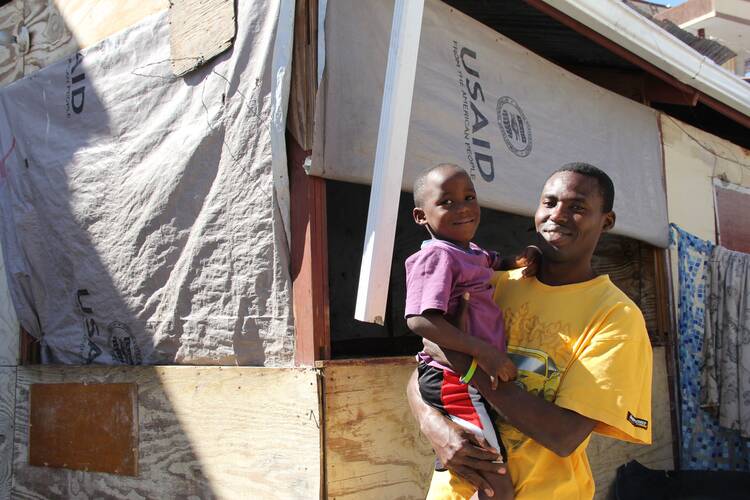International organizations which help people recover from disasters such as floods, famines and earthquakes are missing opportunities to achieve more, according to a new report commissioned by ActionAid, CAFOD, Christian Aid, Oxfam and Tearfund. The report concludes that when international aid organizations work in partnership with local and national groups in countries affected by disasters, their efforts tend to be more effective, relevant and appropriate to the people they are trying to help.
Local organizations can respond more rapidly in the aftermath of a rapid-onset emergency such as a hurricane or earthquake. In addition, their expert knowledge of the local area and culture means they are often best at identifying who is most in need and how to help them. But the report finds that international aid organizations, as well as the systems through which they work together, have for years failed to invest in and commit sufficiently to partnerships with local organisations. Such partnerships inevitably have costs—including financial ones—as well as benefits.
Alexander Carnwath of Christian Aid, who managed the research, said: "Local and national organizations play a crucial part in saving lives and rebuilding communities after disasters, but are too often sidelined by the international humanitarian system. This research provides strong evidence of the benefits they bring following emergencies and calls for a fundamental change to the humanitarian system, to strengthen their role."
CAFOD’s Senior Humanitarian Policy Adviser, Anne Street, said: "In times of conflict, strong local partnerships can give unrivalled access to those most in need. CAFOD’s response in Syria, for example, is spearheaded by local partners with detailed and longstanding knowledge of the situation on the ground. Local partners also have a key role to play in supporting peacebuilding work following a conflict, using their knowledge of local community dynamics to address tensions."
The new report is based on the five commissioning organizations’ experience in four major emergencies: the Democratic Republic of Congo conflict 2009-12; the Haiti earthquake of 2010, the Kenya food crisis of 2010 and the Pakistan floods of 2010.
All five organisations work through local partners, some exclusively and others in addition to direct delivery of aid.
Jane Cocking, Humanitarian Director, at Oxfam, said: "We are seeing, and will continue to see, an increase in the number of people affected by disasters. We cannot possibly respond to this increase without a radical shift in the way we do things.
"It makes both economic and moral sense to invest much more in helping build local capacity to cope with and prepare for more disasters. This will mean working in partnership with local people, organisations and authorities. It does not mean sub-contracting because it is cheaper, it means a real partnership between organisations that can help each other to help those in most need better and quicker."
Oneone Chadburn, Head of Humanitarian Support at Tearfund, said: "For many years, we've worked through local and national partners including networks of churches, because it's much more effective to get straight to the people who most need help when we work through local people.
"And the huge advantage is that those organisations remain after the immediate crisis is over and are well-placed to assist people recover from the effects of the emergency in the years to come."
For more, read the report, "Missed Opportunities."








